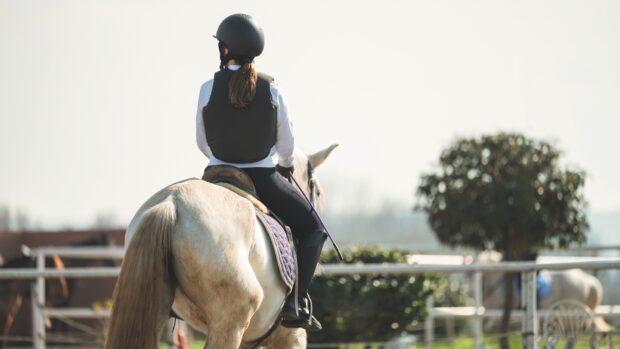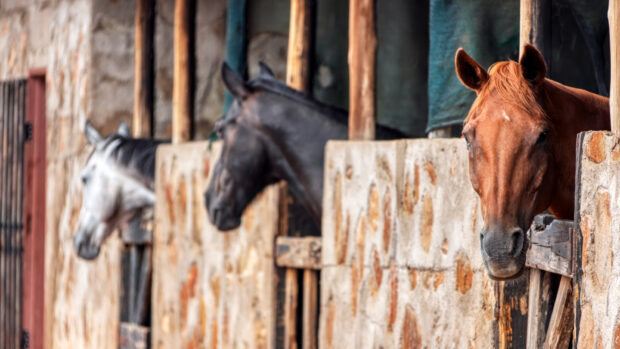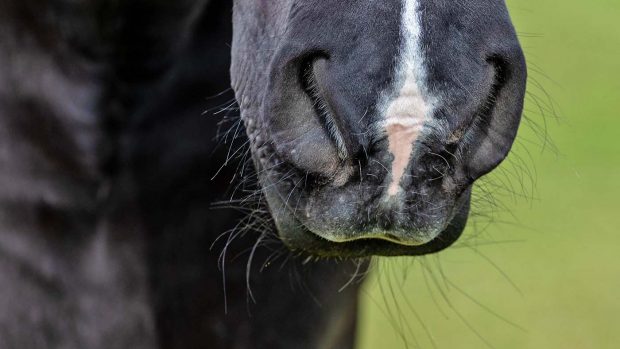McDonald’s may seem a long way from equestrianism – but the company’s experiences could be invaluable in helping maintain public acceptance of horse sport.
Speakers with experience in changing opinions of their sectors addressed a webinar organised by World Horse Welfare on 24 January. The main points that emerged were that responding to and engaging with, rather than ignoring, public concerns is key, as is openness, transparency and respecting different opinions.
Opening, World Horse Welfare CEO Roly Owers referred to the “ever-changing world of public acceptance”, and the benefit of learning from industries that have “emerged stronger from listening to public concerns and working to address them”.
“Public acceptance, or social licence, is nothing to do with law,” Mr Owers reminded guests. “It’s not something you can apply for, or award yourself, it’s an intangible, unwritten contract between society and an industry or activity; it’s a measure of trust.”
Mr Owers cited surveys World Horse Welfare commissioned, in 2022 and 2023, that found some 20% of the public are opposed to horses’ involvement in sport, and another 40% would only support it if horse welfare were improved. He said the most important factor is the public’s trust in the industry to protect equine welfare, and that “actions, not words, will determine whether we can earn and maintain that trust”.
“But we’re not stepping into the unknown,” he said. “With this challenge comes real opportunity, and I hope we can all go back [after this] with confidence that we can change, and inspired by the opportunity.”
After FEI president Ingmar de Vos and Chris Riggs, Hong Kong Jockey Club Equine Welfare Research Foundation director, sustainability consultant Bob Langert spoke.
Much in common
The former vice-president of corporate social responsibility and sustainability for McDonald’s said his work and the equestrian industry “have many things in common”.
“At the start of our journey, we thought the attacks on our brand were from silly people,” he said. “We thought, ‘We’re good people, we have ethics’. But we learned to take the issues seriously.”
Mr Langert said that although he loved his job, he felt as though he were “on a battlefield”, as the company was attacked from many sides.
“Until the late 1980s, everyone loved McDonald’s,” he said. “Then suddenly, kids were sending thousands of those polystyrene boxes to our mail room. I can’t overstate what we felt. We had to do something.”
Rather than be defensive, the company went into partnership with the Environmental Defense Fund to reduce waste, in a move unheard of at the time. Mr Langert said there was concern about working with outsiders, who might be “tree-huggers”.
“But they were smart, they became friends,” he said. “They had our best interests at heart. Their new president believed in working with businesses, and that business could be good for the environment.”
Actions McDonald’s took included ditching polystyrene, making bags from unbleached paper and decreasing napkin size, which Mr Langert said meant a 300m-tonne drop in waste during the 1990s.
“We went from being the villain to a perceived environmental leader,” he said. “We did good for the world, and we found these things were compatible with running a business; they were efficient and we didn’t spend an extra nickel. But it’s essential to work with the outside world as you can’t do it alone.”
Mr Langert said then when major concerns and campaigns arose about animal welfare, McDonald’s had learned that validation from external experts, as well as openness and letting people in, was key to public trust.
He said it was “ugly”, when animal rights activists “came for us”, but McDonald’s again addressed the concerns, involving a renowned independent animal welfare expert, who worked with suppliers.
“The suppliers were resistant; they didn’t want someone external telling them what to do,” he said. “But she wasn’t out to destroy the meat industry, just make welfare as good as it could possibly be. We went from on the defensive to a place we could stand up and when [the activists] attacked, we could put them back on the fringes where they belong.”
Mr Langert said openness, collaboration and “getting stuff done”, is key. But he urged the equestrian industry to be more proactive than McDonald’s initially was, and make changes before they are necessary.
“Be an open book; if you hide things, people think you’re doing wrong,” he said. “Work with your critics, with scientists. Get stuff done and don’t worry about being perfect as there’s always stuff to be done. Fix the hole in the roof while the sun’s shining.”
Building public trust
Charlie Arnot, who grew up in agriculture, founded Look East as he had realised that “attacking those who attacked us wasn’t effective”, and he wanted to help agriculture businesses build public trust. He said the “historical response was to be aggressive” to critics, but that agriculture, and equestrianism, should focus on the “rational majority that wants to believe you’re acting in a way that’s compatible with their values and norms, which are involving”. In our case, the 40% who would support horse sport if welfare was better.
He said that although scientific research and facts are crucial in arguing a point, they are not enough to win public trust, – so what is?
He cited a 2007 incident at a US meat-packing plant, where 143m pounds of beef was recalled. This was after animal rights activists had released “horrific images” of animals being dragged to slaughter. But although the industry debated food safety, the public was “outraged by the abuse”, in a “perfect misalignment” of values, and the industry being “tone-deaf” to public concerns.
This led to a change in US government processes and rules, and the meat plant went bankrupt. But animal activists also realised the power of undercover filming, and the industry recognised it needed to change its approach. Now, he said, the response to any such footage is that the sector’s leaders are just as appalled, and that they look forward to working with the farmer to help raise standards.
“They condemn the action as inconsistent with their standards without condemning the farmer, and work with the farmer,” he said. “It’s an approach more consistent with society’s expectations and standards. We have the science and data but need to understand we’re also in a societal conversation, and the emotional resonance that will help people be confident we’re doing the right thing.”
Mr Arnot said trust is “the most valuable intangible asset”, to help prevent social licence turning into social control, where the industry cannot regulate itself.
He said trust is affected by competency and influential people, and also shared values.
“You might have a message to share: horses are natural athletes and we understand our obligation to protect them,” he said. “Acknowledge both sides of the debate so it doesn’t look like you’re hiding anything. Stop trying to persuade, and you won’t convince people by sharing facts. Acknowledge concerns without validating them: ‘I can tell you care deeply about horse welfare and appreciate that because I do too’, and stop trying to win arguments. We have everything we need already, but you have to listen to people, without judgement; find those shared values. It’s important to validate and understand people’s experiences, have respect for that and engage with them. Then ask, invite dialogue, show you care. If someone says riding is cruel as horses get injured, say, ‘I can tell you care; tell me about your specific concerns’. Ask and listen three times, then share; you care a lot and so do they. Then you have a chance to share what’s being done to protect welfare. Help them understand your commitment to what’s right.”
In a discussion that followed, Mr Riggs acknowledged that the issue is not just perception, there are things about the industry that have to be improved.
“Social licence shouldn’t be the target; that should be doing things really well, then social licence follows,” he said.
You might also be interested in:

Why treating horses like horses, not ‘like kings’, is vital for equestrian sport’s future

*Opinion* Scaremongering clickbait, or a very real threat to the sport we all love?

‘A good life for horses’: why equestrian sport’s future rests on all our shoulders, and what are the next steps

Involvement of horses in sport is ethically ok, research finds

Subscribe to Horse & Hound magazine today – and enjoy unlimited website access all year round
Horse & Hound magazine, out every Thursday, is packed with all the latest news and reports, as well as interviews, specials, nostalgia, vet and training advice. Find how you can enjoy the magazine delivered to your door every week, plus options to upgrade your subscription to access our online service that brings you breaking news and reports as well as other benefits.




